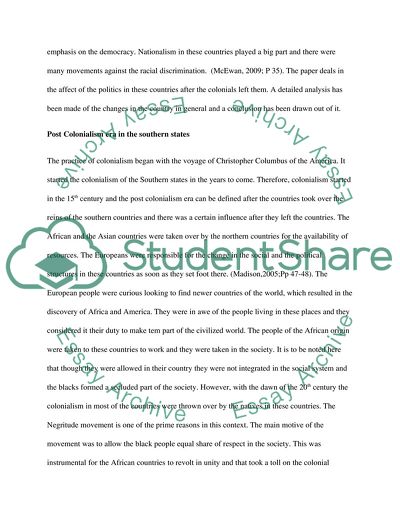Cite this document
(Politics in the Post Colonialism Era Article Example | Topics and Well Written Essays - 3000 words, n.d.)
Politics in the Post Colonialism Era Article Example | Topics and Well Written Essays - 3000 words. Retrieved from https://studentshare.org/history/1735685-how-does-post-colonialism-affect-the-politics-of-southern-states
Politics in the Post Colonialism Era Article Example | Topics and Well Written Essays - 3000 words. Retrieved from https://studentshare.org/history/1735685-how-does-post-colonialism-affect-the-politics-of-southern-states
(Politics in the Post Colonialism Era Article Example | Topics and Well Written Essays - 3000 Words)
Politics in the Post Colonialism Era Article Example | Topics and Well Written Essays - 3000 Words. https://studentshare.org/history/1735685-how-does-post-colonialism-affect-the-politics-of-southern-states.
Politics in the Post Colonialism Era Article Example | Topics and Well Written Essays - 3000 Words. https://studentshare.org/history/1735685-how-does-post-colonialism-affect-the-politics-of-southern-states.
“Politics in the Post Colonialism Era Article Example | Topics and Well Written Essays - 3000 Words”, n.d. https://studentshare.org/history/1735685-how-does-post-colonialism-affect-the-politics-of-southern-states.


